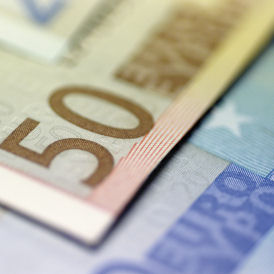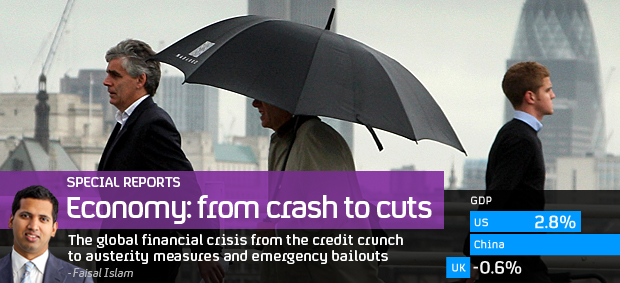Euro leaders seal Greece bailout deal
An emergency summit reaches a deal on a new bailout package for struggling Greece, rallying the markets and bringing the eurozone back from the economic brink.

European leaders at the emergency summit in Brussels have agreed a 109bn euro (£95.9bn) rescue package for Greece with a lower interest rate and more time to pay it off.
If the deal had not been agreed, many economists feared that Greece would have defaulted on its debt, sparking a wider crisis which could have engulfed other stricken eurozone economies like Ireland and Portugal and ultimately put serious strain on the single currency itself.
The bailout includes 27bn euro (£32.5bn) from the private sector. The terms of the deal are also softer – it will not mature for 15 years, giving Greece longer to pay it back, and the interest rate on the loan has been cut to around 3.5 per cent.
In an effort to stop the financial contagion spreading, these terms have also been extended to bailed out Portugal and Ireland. It is hoped this will prevent debt problems from causing crisis in Italy and Spain.
The European bailout programme – the European Financial Stability Facility (EFSF) – has also been expanded so it can act more freely.
Eurozone has ‘got a grip’
President of the European Council Herman Van Rompuy said the eurozone had responded quickly.
“Convening this meeting focused the minds and accelerated finding a solution. I could not allow a difficult situation to become a dangerous one.”
Read more from Channel 4 News: why the eurozone crisis is a political crisis
European Commission President Jose Manuel Barroso added: “We needed a credible package, we have a credible package… For the first time in the crisis, politics and markets are coming together.”
British Chancellor George Osborne stressed to UK taxpayers that they would not have to fund the bailout, but said the agreement was still positive for the UK.
“Britain has a huge interest in a stable eurozone. Today’s package from eurozone countries to support Greece is an important and positive development…They have shown they can get a grip, now they need to keep it.”
The Greek Prime Minister, George Papandreou, said the deal had “lightened the burden on the Greek people”.
He said: “We now have a programme and a package of decisions which create a sustainable path for Greece, a sustainable debt management for Greece, and this in the end of course will mean not only the funding of a programme, but it will also mean the lightening of the burden on the Greek people,” he said.
Markets rally
European markets rose on opening this morning, led by a rally in the banking sector. London’s leading index, the FTSE 100, climbed 0.5 per cent or 38.3 points to 5938.2. Overnight the news buoyed America’s Dow Jones Industrial Average by more than 1 per cent.
Across Europe, Greek banks were among the top performers up 6 per cent overall. British bank Barclays led the sector at home, up 4 per cent. Meanwhile, French banks BNP Paribas and Credit Agricole – which are heavily exposed to Greece – gained 2.7 per cent and 3.8 per cent respectively.
